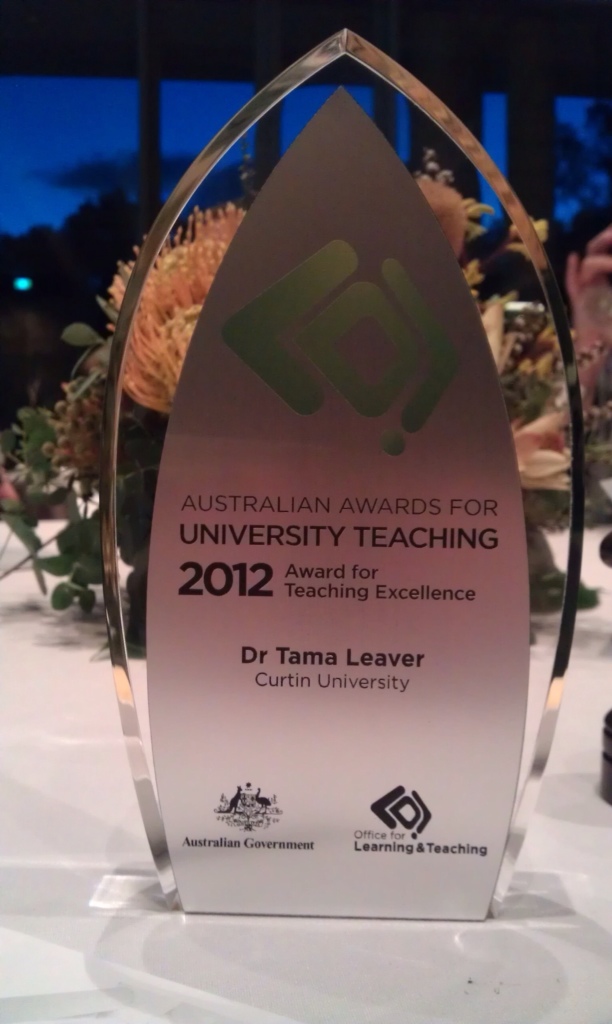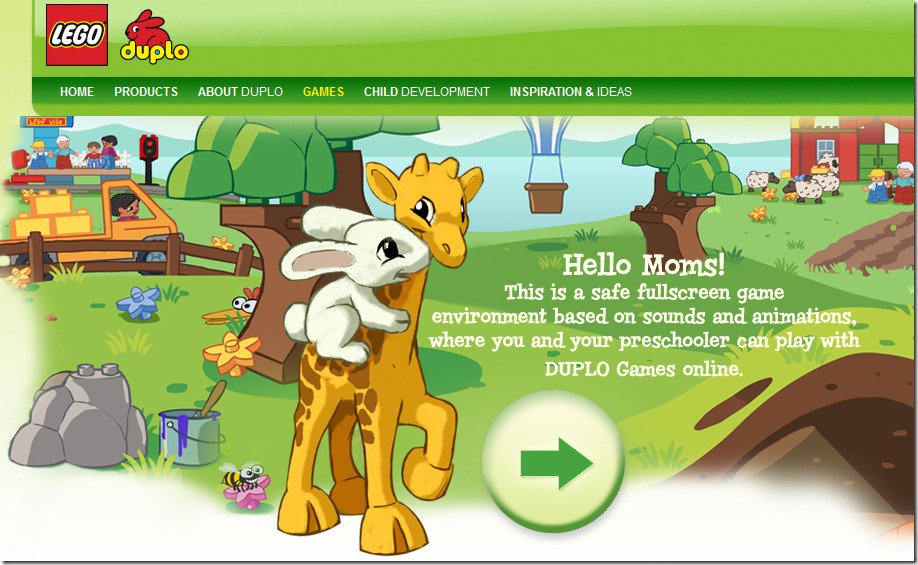Home » personal
Category Archives: personal
Angry Birds as a Social Network Market
Earlier today my colleague Michele Willson and I ran the ANZCA PreConference Social, Casual, Mobile: Changing Games which went really well, bringing together 17 games scholars from Australia and Canada, including a fantastic keynote by Mia Consalvo and plenary by John Banks.
I also had the opportunity to present today, and the slides and audio from my talk are below:
And here’s the abstract if you’re interested:
The hugely successful franchise Angry Birds by Finnish company Rovio is synonymous with the new and growing market of app-based games played on smartphones and tablets. These are often referred to as ‘casual games’, highlighting their design which rewards short bursts of play, usually on mobile media devices, rather than the sustained attention and dedicated hardware required for larger PC or console games. Significantly, there is enormous competition within the mobile games, while the usually very low cost (free, or just one or two dollars) makes a huge ranges of choices available to the average consumer. Moreover, these choices are usually framed by just one standardised interface, such as the Google Play store for Android powered devices, or the Apple App store for iOS devices. Within this plethora of options, I will argue that in addition to being well designed and enjoyable to play, successful mobile games are consciously situated within a social network market.
The concepts of ‘social network markets’ reframes the creative industries not so much as the generators of intellectual property outputs, but as complex markets in which the circulation and value of media is as much about taste, recommendations and other networked social affordances (Potts, Cunningham, Hartley, & Ormerod, 2008). For mobile games, one of the most effective methods of reaching potential players, then, is through the social attentions and activity of other players. Rovio have been very deliberate in the wide-spread engagement with players across a range of social media platforms, promoting competitive play via Twitter and Facebook, highlighting user engagement such as showcasing Angry Birds themed cakes, and generally promoting fan engagement on many levels, encouraging the ‘spreadability’ of Angry Birds amongst social networks (Jenkins, Ford, & Green, 2013). In line with recognising the importance of engagement with the franchise, Rovio have also taken a very positive approach of unauthorised merchandising and knock-offs, especially in China and South-East Asia. In line with Montgomery and Potts’ (2008) argument that a weaker intellectual property approach will foster a more innovative creative industries in China, rather than attempting to litigate of lock down unauthorised material, Rovio have stated they see this as building awareness of Angry Birds and are working to harness this new, socially-driven market (Dredge, 2012). As Rovio now license everything from Angry Birds plush toys to theme parks, social network markets can be perpetuated even by unauthorised material, which builds awareness and interest in the official games and merchandising in the long run. Far from a standalone example, this paper argues that not only is Rovio consciously situating Angry Birds within a social network market model, but that such a model can drive other mobile games success in the future.
References
Dredge, S. (2012, January 30). Angry Birds boss: “Piracy may not be a bad thing: it can get us more business.” The Guardian. Retrieved from http://www.guardian.co.uk/technology/appsblog/2012/jan/30/angry-birds-music-midem
Jenkins, H., Ford, S., & Green, J. (2013). Spreadable Media: Creating Value and Meaning in a Networked Culture. New York and London: New York University Press.
Montgomery, L., & Potts, J. (2008). Does weaker copyright mean stronger creative industries? Some lessons from China. Creative Industries Journal, 1(3), 245–261. doi:10.1386/cij.1.3.245/1
Potts, J., Cunningham, S., Hartley, J., & Ormerod, P. (2008). Social network markets: a new definition of the creative industries. Journal of Cultural Economics, 32(3), 167–185. doi:10.1007/s10824-008-9066-y
Who Should be the next Doctor?
 In one of the all too rare lighter moments of the last few weeks, I had great fun chatting with Cassie McCullagh and Jason Di Rosso on Radio National’s The List programme about who should replace Matt Smith now that it’s been announced he’ll be leaving Doctor Who during this year’s Christmas special.
In one of the all too rare lighter moments of the last few weeks, I had great fun chatting with Cassie McCullagh and Jason Di Rosso on Radio National’s The List programme about who should replace Matt Smith now that it’s been announced he’ll be leaving Doctor Who during this year’s Christmas special.
In the short 5 minute segment we weigh the possibility of a female Doctor, discuss the increasing US obsession with Doctor Who and finally I reveal my controversial choice for favourite Doctor (you’ll have to listen if you if you want to find out Who!).
The programme airs on Radio National Australia at 5.30 Friday, 7 June or you can listen online here.
The Social Media Contradiction: Data Mining and Digital Death
I’ve got a new article in the most recent issue of the M/C Journal entitled ‘The Social Media Contradiction: Data Mining and Digital Death’. Here’s the abstract:
Many social media tools and services are free to use. This fact often leads users to the mistaken presumption that the associated data generated whilst utilising these tools and services is without value. Users often focus on the social and presumed ephemeral nature of communication – imagining something that happens but then has no further record or value, akin to a telephone call – while corporations behind these tools tend to focus on the media side, the lasting value of these traces which can be combined, mined and analysed for new insight and revenue generation. This paper seeks to explore this social media contradiction in two ways. Firstly, a cursory examination of Google and Facebook will demonstrate how data mining and analysis are core practices for these corporate giants, central to their functioning, development and expansion. Yet the public rhetoric of these companies is not about the exchange of personal information for services, but rather the more utopian notions of organising the world’s information, or bringing everyone together through sharing.
The second section of this paper examines some of the core ramifications of death in terms of social media, asking what happens when a user suddenly exists only as recorded media fragments, at least in digital terms. Death, at first glance, renders users (or post-users) without agency or, implicitly, value to companies which data-mine ongoing social practices. Yet the emergence of digital legacy management highlights the value of the data generated using social media, a value which persists even after death. The question of a digital estate thus illustrates the cumulative value of social media as media, even on an individual level. The ways Facebook and Google approach digital death are examined, demonstrating policies which enshrine the agency and rights of living users, but become far less coherent posthumously. Finally, along with digital legacy management, I will examine the potential for posthumous digital legacies which may, in some macabre ways, actually reanimate some aspects of a deceased user’s presence, such as the Lives On service which touts the slogan “when your heart stops beating, you’ll keep tweeting”. Cumulatively, mapping digital legacy management by large online corporations, and the affordances of more focussed services dealing with digital death, illustrates the value of data generated by social media users, and the continued importance of the data even beyond the grave.
Read the rest at the M/C Journal (open access).
Incidentally, yes, one of the points in this article is already out of date as last month Google quietly launched their Inactive Account Manager. While far from perfect, this Inactive Account manager gives Google users more control over what happens to their Google stored assets after they pass away (well, actually, after they don’t log in for a specified period of time). It is, however, far from perfect.
Joss Whedon, Dr. Horrible, and the Future of Web Media?

I’m pleased to announce that my article Joss Whedon, Dr. Horrible, and the Future of Web Media? is finally available. Here’s the abstract:
In the 2007 Writers Guild of America strike, one of the areas in dispute was the question of residual payments for online material. On the picket line, Buffy creator Joss Whedon discussed new ways online media production could be financed. After the strike, Whedon self-funded a web media production, Dr. Horrible’s Sing-Along Blog. Whedon and his collaborators positioned Dr. Horrible as an experiment, investigating whether original online media content created outside of studio funding could be financially viable. Dr. Horrible was a bigger hit than expected, with a paid version topping the iTunes charts and a DVD release hitting the number two position on Amazon. This article explores which factors most obviously contributed to Dr. Horrible’s success, whether these factors are replicable by other media creators, the incorporation of fan labor into web media projects, and how web-specific content creation relates to more traditional forms of media production.
The official version is available in the new issue of Popular Communication (vol 11, no. 2). If you can’t access the article due to the paywall, then there’s an open access pre-print available at Academia.edu.
National Teaching Award!
At an amazing ceremony and dinner at the National Gallery in Canberra tonight I was surprised, flattered and delighted to receive an Australian Award for University Teaching in the Humanities and Arts. This is a huge honour, and I’m extremely grateful to have my approaches to learning and teaching acknowledged in this manner. That said, I’m incredibly conscious that no one teaches in a vacuum, and in Internet Communications I am but one cog in a very complex and well-maintained machine, so this award is at least as much testimony to all of our team at Curtin University as it is to me.
Most importantly, though, I wanted to publicly thank the students who offered their thoughts and feedback about my teaching. We live in an era where students get asked to fill in an awfully large number of feedback forms, surveys and evaluations, so adding even one more thing to that pile is a big ask. So, THANK YOU to all of my students, current and past, whose kind words led to this award.
I’d also like to think that this award is a reminder that despite the huge media attention being paid to MOOCs and so forth, quality online education has been available and refined over more than a decade, and our Internet Communications program is one such example. I truly hope that as this next generation of online learning matures, close attention will be paid to successful examples already available! Successful learning and teaching is, after all, built on understanding the successes and failures of the past.
And then there were four …
Em and I are delighted to share the news of the birth of our son, and Henry’s little brother, Thomas Frederick who arrived in the world last week. After a somewhat dramatic entrance into the world, both Em and Tom are doing well, and Henry seems fascinated by his very cute but very small little brother. Em and I are, as you might imagine, besotted.
Needless to say, blogging and anything not family related will be somewhere between slow and non-existent for some time. I’m not back at work until late January, so I apologize in advance for any communication delays. I’m going to be enjoying some time just being a dad and a husband! ![]()
[This photograph is © All rights reserved, and is an exception to the Creative Commons license otherwise covering this blog.]
Performing Animals: Synthespians, Primates and Cinematic Sympathy
Having let this blog become more link digests than anything else, I promised myself I’d write a bit more about my research activities, so with that in mind, I’m looking down a new research path and thought I’d share my very first thoughts. As usual, it has taken a deadline to galvanise any writing, but the Call for Papers for the Green Planets: Ecology and Science Fiction sounded enticing so, below is the chapter abstract I submitted today. (There’s no guarentee it’ll be accepted, of course, but this chapter will get written one way or another as it has definitely fired my imagination). Feedback or thoughts are welcome, of course!
Performing Animals: Synthespians, Primates and Cinematic Sympathy
Chapter abstract.
Virtual actors, or synthespians (‘synthetic thespians’), simultaneously expand what ‘acting’ actually entails whilst also asking film viewers to sympathise with often non-human entities in contexts which strive for verisimilitude. Initial industry responses to synthespians centred on fears that unpaid virtual actors could replace human beings but Dan North argues that rather than making actors superfluous, synthespians actually illustrate ‘an interdependence between the human and the machine, the digital and the analogue, the real and the simulated’ (2008, p. 183). The performance capture technologies behind synthespians facilitate a complex symbiosis between the visceral, physical performance of actors and the informatic and computational artistry of cutting edge digital media. While scholarly attention has been paid to virtual actors portraying fictional creatures or aliens – such as Jar Jar Binks in Star Wars: Episode I – The Phantom Menace (1999), Gollum in The Lord of the Rings trilogy (2001, 2002, 2003) or the Na’vi in Avatar (2009) – this chapter instead examines synthespians who are performing (as) animals.
Focusing on Kong from Peter Jackson’s King Kong (2005) and Caesar from Rupert Wyatt’s Rise of the Planet of the Apes (2011), both of whom are performed by actor Andy Serkis and the special effects team at WETA Digital, this chapter will argue that primate synthespians complicate and challenge the boundaries between people and animals, between natural and technological, and between the computational and ecological (amongst others). To provide historical and cultural context, I will draw on antecedents from the Kong and Planet of the Apes franchises as well as contemporary texts, such as the documentary Project Nim (2011) which details a 1970s experiment scrutinising the nature/nurture divide in which a chimpanzee was raised as a human child. The strong critical and commercial success of Rise of the Planet of the Apes suggests audiences can readily sympathise with a primate protagonist, while Barbara Creed has similarly argued that Jackson’s Kong is ‘a screen animal who holds our sympathies throughout the film’ (2009, p. 191). Indeed, recognising its role in promoting animal rights, People for the Ethical Treatment of Animals (PETA) has actually given Rise of the Planet of the Apes their official approval. Ultimately, this chapter will explore the way these films generate sympathetic digital primates, the inherent contradictions in provoking sympathy by replacing animals with actors performing animals, and how these films and audience reactions may serve as a focal point for broader consideration of the relationships between people, primates, nature and technology.
References
Creed, B. (2009). Darwin’s Screens: Evolutionary Aesthetics, Time and Sexual Display in the Cinema. Melbourne: Melbourne University Press.
North, D. (2008). Performing Illusions: Cinema, Special Effects and the Virtual Actor. London & New York: Wallflower Press.

[Image Source: The Hollywood Reporter]
Lego: Dads don’t play with toddlers?
Let me start be saying I love Lego and our 2-year old loves his Duplo (the bigger Lego blocks aimed at toddlers). I was excited to hear Lego had created and released an online Duplo space, with games and interactions. Sounds like a perfect safe space to share with Mr2. However, I was incredibly disappointed when I turned up, only to discover that someone at Lego seems to have entirely forgotten that Dad’s exist …
“Hello Moms!” really? This is very disappointing for a dad. And for equality in general.
Lego, please lift your game: I want to be able to enjoy this space with my son, and enjoying many, many hours of Lego and Duplo together.
The Pangalactic Interwebs Podcast
 After minimal deliberation and driven entirely by our own folly, my colleague Helen Merrick and I have started a new podcast that we’re rather geekily calling The Pangalactic Interwebs. We’re trying to mix a few thoughts about online culture with some other thoughts and opinions about science fiction and pretty much anything else that takes our fancy. We’re cautiously calling our schedule irregular, but we’re hoping to do a new podcast every two or three weeks. The first episode of the Pangalactic Interwebs has just been posted, so if you’re interested, please have a listen. If you like what you hear, please consider subscribing!
After minimal deliberation and driven entirely by our own folly, my colleague Helen Merrick and I have started a new podcast that we’re rather geekily calling The Pangalactic Interwebs. We’re trying to mix a few thoughts about online culture with some other thoughts and opinions about science fiction and pretty much anything else that takes our fancy. We’re cautiously calling our schedule irregular, but we’re hoping to do a new podcast every two or three weeks. The first episode of the Pangalactic Interwebs has just been posted, so if you’re interested, please have a listen. If you like what you hear, please consider subscribing!
[Image by Colleen AF Venable; CC BY SA]




